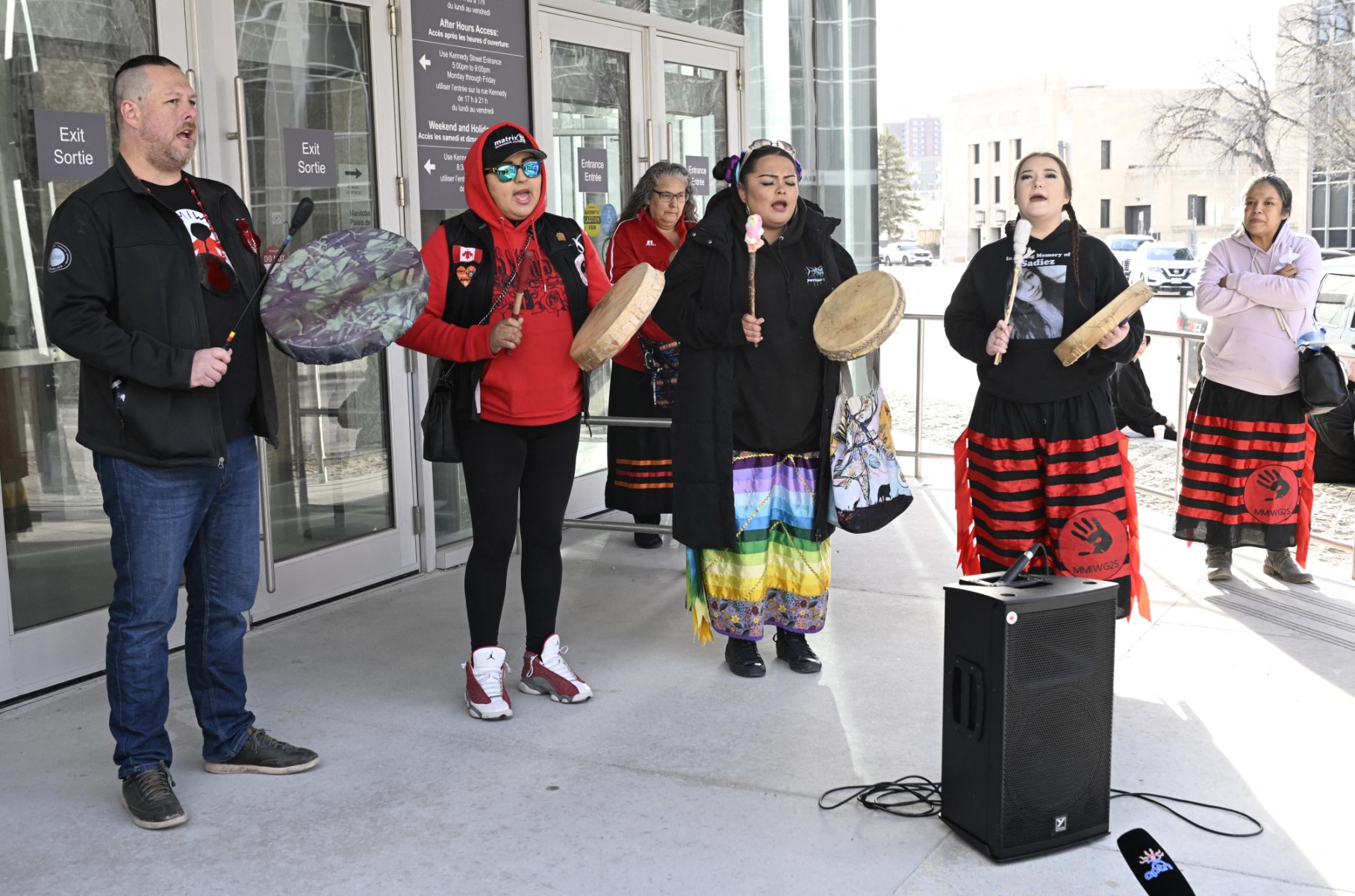Canada names fourth Indigenous woman murdered by serial killer

Relatives and friends of late Marcedes Myran gather for a candlelight vigil in front of Manitoba’s highest trial court in Winnipeg, Manitoba, on April 28, 2024, on the eve of the trial of Jeremy Skibicki. Agence France-Presse
TORONTO — Canadian police on Wednesday identified the fourth victim of a serial killer who preyed on Indigenous women, a breakthrough authorities hoped could offer comfort to her family after a three-year investigation.
Jeremy Skibicki, who targeted Indigenous women he met in homeless shelters in the province of Manitoba, is serving multiple life sentences after being convicted of four murders last year.
Skibicki’s killings were seen as a symbol of the dangers faced by Indigenous women in Canada, where they disproportionately fall victim to violence, termed a “genocide” by a national public inquiry in 2019.
READ: Canada prisoners relocated as hundreds flee wildfires
After his May 2022 arrest, police linked Skibicki to the murders of Morgan Harris, Marcedes Myran, Rebecca Contois and a fourth woman whose identity was unknown.
Indigenous leaders named her Buffalo Woman, in an effort to give her an identity while her real name remained unknown.
Police in Manitoba’s capital Winnipeg on Wednesday identified her as Ashlee Shingoose of St. Theresa Point First Nation, who was 31 when she vanished in March 2022.
Winnipeg’s deputy police chief Cam Mackid said the identification followed new information provided by Skibicki during a post-conviction interview in December. Investigators were able to analyze DNA on some of the items that belonged to the victim.
The Skibicki case stirred tensions between police and Indigenous communities who questioned the handling of the investigation, particularly delays in the search for the victims.
READ: Canadian serial killer dies after prison assault
The Indigenous chief of St. Theresa Point, Raymond Flett, told reporters: “Ashlee Shingoose represented not only an individual, but also the countless Indigenous women who have gone missing, or have been murdered without proper investigation, accountability, or closure for their families.”
The case was “a painful reminder of the injustices faced by our Indigenous women,” he added.
Contois’s remains were found in a garbage bin and the Brady landfill site in Winnipeg’s outskirts.
The remains of Harris and Myran were found at the Prairie Green landfill north of the city.
Police said Wednesday they believed Shingoose’s body had also been dumped at the Brady landfill and pledged to search the site.
Quoting a statement sent by Shingoose’s mother, Flett said: “Please start the search as soon as possible. It’s been a long time waiting. I need to bring her home.”
Manitoba Premier Wab Kinew, the first Indigenous person to lead a Canadian province, said he could not promise Shingoose’s remains would be found.
“But I can promise you that we are going to try… and to do our best to bring your loved one, Ashlee Shingoose, home so you can memorialize her and honor her in the way that you see fit,” he said, addressing her family.


















